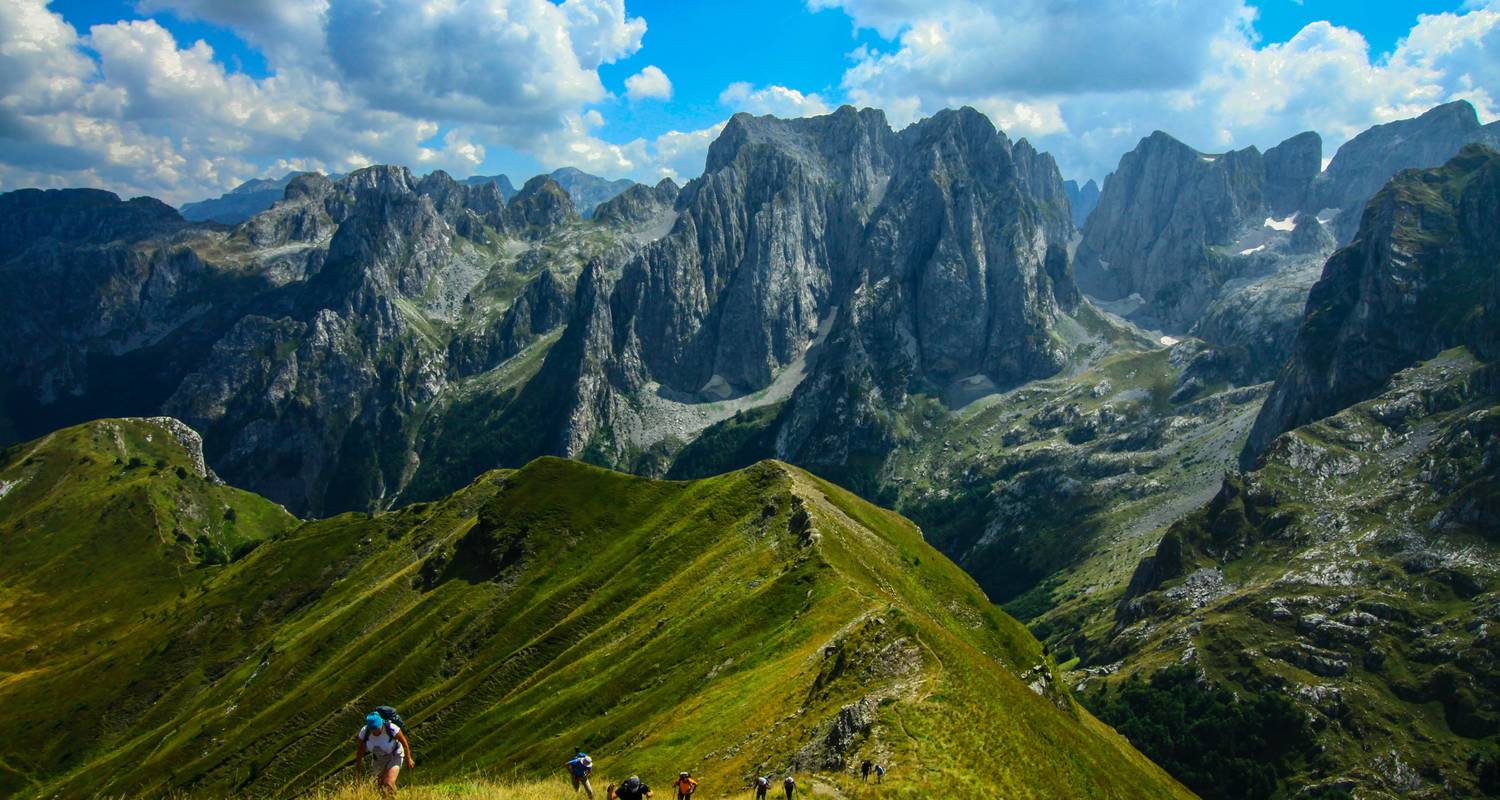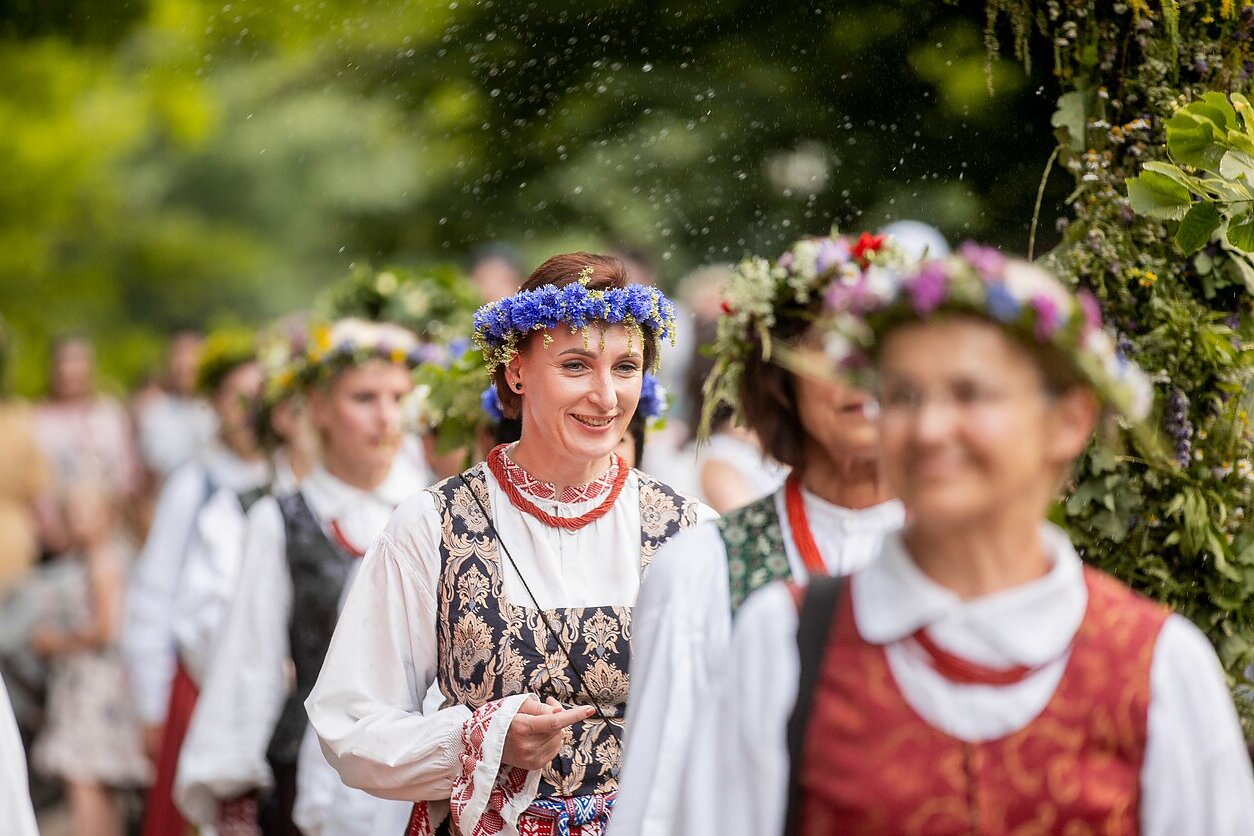
Welcome to the fascinating world of Albania! Nestled in the Balkan Peninsula, Albania is a vibrant country with a rich history, stunning landscapes, and a culture that is truly unique. From its ancient archaeological sites to its beautiful beaches along the Adriatic and Ionian coasts, Albania offers a little something for everyone.In this article, we will explore 34 interesting facts about Albania that will pique your curiosity and shed light on this hidden gem of a country. From its turbulent past under communist rule to its transformation into a thriving democracy, Albania has come a long way. Whether you are an avid traveler, a history enthusiast, or simply interested in learning about different cultures, you will find plenty of captivating tidbits about Albania in the pages that follow.So, sit back, relax, and let’s delve into the enchanting world of Albania, where stunning landscapes, warm hospitality, and a rich cultural heritage await you at every turn.
Key Takeaways:
- Albania’s rich cultural heritage, stunning coastline, and warm hospitality make it a captivating destination for travelers. With 34 fascinating facts, it’s a hidden gem waiting to be explored and cherished.
- From ancient ruins to delicious cuisine, Albania offers a diverse and enchanting experience. Plan your visit to the Land of Eagles and immerse yourself in its historical, natural, and cultural wonders.
Rich Cultural Heritage
Albania boasts a rich cultural heritage with influences from Illyrians, Romans, Byzantines, Ottoman Turks, and more.
Bunker Mania
Albania is home to more than 173,000 bunkers, making it one of the most bunkerized countries in the world.
Stunning Coastal Beauty
Albania’s coastline stretches over 450 kilometers, offering breathtaking views of the Adriatic and Ionian Seas.
The Land of Eagles
Albania is known as the “Land of Eagles” due to its abundant population of these majestic birds.
UNESCO World Heritage Sites
Albania is home to three UNESCO World Heritage Sites: the ancient city of Butrint, Gjirokastër, and Berat.
Colorful Traditional Costumes
The traditional costumes of Albania are known for their vibrant colors and intricate designs, representing different regions and communities.
Hospitality and Warmth
Albanians are renowned for their hospitality and warmth, welcoming visitors with open arms and treating them like family.
The Mystery of Rozafa Castle
Rozafa Castle in Shkodra has a fascinating legend associated with it, involving a sacrifice to prevent the castle walls from crumbling.
The Unique Bektashi Order
The Bektashi Order, a Sufi Islamic sect, has a significant presence in Albania and is known for its progressive and inclusive ideals.
Exceptional Cuisine
Albanian cuisine offers a delightful mix of Mediterranean and Balkan flavors, with dishes like byrek, tavë kosi, and fërgesë standing out as local favorites.
The Enigmatic Blue Eye Spring
Located near Saranda, the Blue Eye Spring is a mesmerizing natural phenomenon where a deep blue circular pool seems to have no bottom.
Historical Ottoman Bridges
Albania is home to several well-preserved Ottoman bridges that serve as a testament to the country’s rich architectural heritage.
Land of Lakes
Albania is dotted with numerous lakes, including Lake Ohrid, Lake Shkodra, and Lake Prespa, offering serene natural landscapes.
UNESCO-recognized Iso Polyphony
Albania’s traditional polyphonic singing, known as Iso Polyphony, has been recognized by UNESCO as an intangible cultural heritage.
Geographical Diversity
Despite being a small country, Albania boasts incredible geographical diversity, ranging from stunning beaches to towering mountains.
The Legend of Scanderbeg
Gjergj Kastrioti, known as Scanderbeg, is a national hero in Albania for his resistance against the Ottoman Empire in the 15th century.
Numerous Ancient Ruins
Albania is home to various ancient ruins, such as Apollonia, Butrint, and Byllis, offering a glimpse into its rich historical past.
Albania’s Flag
The Albanian flag is a simple design of a double-headed eagle on a red background, representing bravery, strength, and national pride.
Cultural Celebrations
Albanians celebrate various cultural and religious festivals throughout the year, including Nowruz, Kurbani, and the National Independence Day.
The Albanian Language
The Albanian language is one of the oldest living languages in Europe and has its unique alphabet derived from the Latin script.
Mountaintop Castles
Albania is home to several mountaintop castles, such as Krujë Castle and Petrelë Castle, offering panoramic views of the surrounding landscapes.
The Ottoman Influence
The Ottoman Empire had a significant influence on Albania, leaving behind architectural wonders like mosques, hammams, and bazaars.
Ancient Illyrian Heritage
The Illyrians, an ancient Indo-European civilization, have left their mark on Albanian culture, language, and historical sites.
Drin River Springs
The Drin River in Albania features numerous freshwater springs, adding to the country’s natural beauty.
Historical Artifacts in the National Museum
Tirana’s National Museum houses a vast collection of historical artifacts, showcasing Albania’s rich cultural and historical heritage.
The Mountain of Tomorr
Mount Tomorr, located in central Albania, is considered sacred by both Christians and Muslims and is the site of various religious pilgrimages.
Traditional Handicrafts
Albanian artisans excel in traditional handicrafts such as woodcarving, embroidery, and filigree jewelry making, preserving centuries-old techniques.
The Apollonia Festival
The annual Apollonia Festival celebrates the ancient city of Apollonia with music, theater performances, and cultural exhibits.
The Fortress of Berat
The Fortress of Berat, also known as the “City of a Thousand Windows,” is a UNESCO World Heritage Site and offers stunning views of the city.
Breathtaking Waterfalls
Albania is home to many picturesque waterfalls, including the breathtaking Syri i Kalter, cascading down from the mountains.
The Butrint Amphitheatre
Located in the ancient city of Butrint, the well-preserved Butrint Amphitheatre is an impressive archaeological site.
Lake Ohrid’s Endemic Species
Lake Ohrid, shared between Albania and North Macedonia, is home to more than 200 endemic species, making it a biodiversity hotspot.
The Primeval Beech Forest of Rrajcë
The Primeval Beech Forest of Rrajcë is a UNESCO World Heritage Site, offering a glimpse into Albania’s pristine natural landscapes.
Warm Mediterranean Climate
Albania enjoys a warm Mediterranean climate, with long, hot summers and mild winters, making it a popular tourist destination.
Conclusion
In conclusion, Albania is a fascinating country with a rich history, stunning natural beauty, and warm and welcoming people. From its ancient archaeological sites to its breathtaking landscapes, there is much to discover and explore. Whether you’re interested in exploring its vibrant cities, relaxing on its beautiful beaches, or hiking in its pristine mountains, Albania offers something for everyone. Its unique blend of cultural influences, delicious cuisine, and traditional hospitality make it a truly memorable destination. So, consider adding Albania to your travel bucket list and embark on an unforgettable adventure in this hidden gem of the Balkans.
FAQs
1. What is the capital of Albania?
The capital of Albania is Tirana. It is the largest city in the country and serves as the cultural, economic, and political center.
2. What is the official language of Albania?
The official language of Albania is Albanian. It is spoken by the majority of the population and has two main dialects, Gheg and Tosk.
3. Is Albania a safe country to visit?
Yes, Albania is generally considered a safe country to visit. However, it’s always recommended to take normal precautions and be aware of your surroundings, especially in crowded tourist areas.
4. What are some popular tourist attractions in Albania?
Some popular tourist attractions in Albania include the ancient city of Butrint, the UNESCO World Heritage site of Berat, the Albanian Riviera, and the stunning Lake Ohrid.
5. Is the tap water in Albania safe to drink?
The tap water in some parts of Albania is safe to drink, but it’s recommended to drink bottled water, especially when visiting rural areas or smaller towns.
6. What is the currency used in Albania?
The currency used in Albania is the Albanian Lek (ALL).
7. Do I need a visa to visit Albania?
It depends on your nationality. Some countries are exempt from requiring a visa for short-term visits to Albania. It is best to check with the nearest Albanian embassy or consulate for specific visa requirements.
Albania's captivating history extends beyond its natural wonders and cultural heritage. Delve into the intriguing life of Enver Hoxha, a controversial figure who left an indelible mark on Albanian society. Explore the hallowed grounds of Selman Stërmasi Stadium, where passionate fans have witnessed unforgettable moments. Lastly, immerse yourself in the rich tapestry of Flamurtari Vlorë, a football club with a storied past and unwavering spirit. Each topic offers a unique perspective on Albania's multifaceted identity, promising to enrich your understanding of this fascinating nation.
Was this page helpful?
Our commitment to delivering trustworthy and engaging content is at the heart of what we do. Each fact on our site is contributed by real users like you, bringing a wealth of diverse insights and information. To ensure the highest standards of accuracy and reliability, our dedicated editors meticulously review each submission. This process guarantees that the facts we share are not only fascinating but also credible. Trust in our commitment to quality and authenticity as you explore and learn with us.


